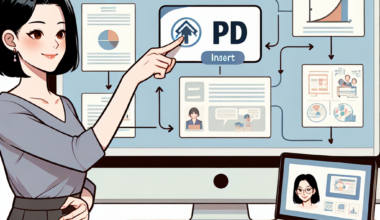Introduction
In today’s digital age, corporate espionage poses a significant threat to businesses of all sizes. The unauthorized access and theft of sensitive information can lead to substantial financial losses, damage to reputation, and a decline in competitive advantage. To combat these threats, many organizations are turning to ethical hacking as a proactive security measure.
Understanding Corporate Espionage
Corporate espionage involves the illegal gathering of confidential information by individuals or entities aiming to gain a competitive edge. This practice can include stealing trade secrets, proprietary data, and other valuable intellectual property. The motives behind corporate espionage range from financial gain to undermining competitors’ market positions.
What is Ethical Hacking?
Ethical hacking, also known as penetration testing or white-hat hacking, refers to the authorized and legal practice of probing computer systems, networks, and applications to identify vulnerabilities. Ethical hackers use the same techniques as malicious hackers but do so with permission and with the objective of improving security.
The Significance of Ethical Hacking in Preventing Corporate Espionage
Identifying Vulnerabilities
One of the primary roles of ethical hacking is to uncover security weaknesses before malicious actors can exploit them. By simulating real-world attacks, ethical hackers can pinpoint areas where a company’s defenses are lacking, allowing the organization to address these gaps proactively.
Proactive Security Measures
Ethical hacking promotes a proactive approach to security. Instead of waiting for a breach to occur, organizations can continually test their defenses, ensuring that they are robust and up-to-date against the latest threats. This ongoing assessment helps in building a resilient security infrastructure that can deter corporate espionage attempts.
Continuous Monitoring and Improvement
Security is not a one-time setup but a continuous process. Ethical hackers regularly monitor systems to detect and mitigate new vulnerabilities as they emerge. This ongoing vigilance is crucial in preventing corporate espionage, as it ensures that security protocols evolve in response to changing threat landscapes.
Benefits of Ethical Hacking for Businesses
- Enhanced Security: By identifying and addressing vulnerabilities, ethical hacking strengthens overall security posture.
- Risk Mitigation: Proactively uncovering weaknesses reduces the risk of data breaches and intellectual property theft.
- Regulatory Compliance: Many industries have regulations requiring regular security assessments, which ethical hacking can fulfill.
- Cost Efficiency: Preventing security breaches is often more cost-effective than dealing with the aftermath of an attack.
- Reputation Protection: Maintaining strong security measures helps preserve a company’s reputation and trustworthiness.
Conclusion
Ethical hacking plays a pivotal role in safeguarding businesses against the ever-present threat of corporate espionage. By proactively identifying vulnerabilities, implementing robust security measures, and continuously monitoring systems, ethical hackers help ensure that organizations can protect their sensitive information and maintain a competitive edge. In a world where data breaches and cyber threats are increasingly sophisticated, ethical hacking stands as a vital component of any comprehensive security strategy.






